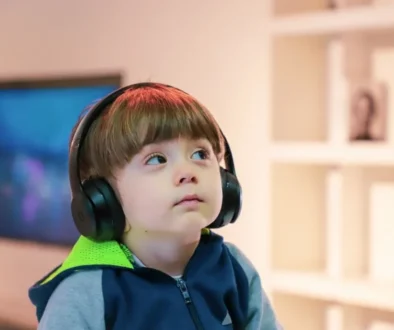What Is High Functioning Autism?
In 2021, a study found that 1 in 44 children was born with Autism. While some children have high functioning Autism and may appear more capable of day-to-day activities, they still encounter obstacles in their personal and social lives.
If you want to know more about high functioning Autism, you’ve come to the right place. In this article, we’ll cover everything you need to know to feel more informed about this type of Autism.
What is High Functioning Autism?
Despite common misconceptions, high functioning Autism isn’t an official medical diagnosis. It is an informal term used in conjunction with individuals with Autism who can read, write, perform basic life skills, and live independently.
Many with this form of Autism were previously believed to have Asperger’s syndrome, but this is no longer a recognized term in the medical field for diagnoses. High functioning autism simply refers to an individual with milder symptoms.
Diagnosing Autism
Diagnosing Autism Spectrum Disorder (ASD) is often challenging because it can’t be diagnosed with medical tests. Doctors only have the medical and behavioral history of a child to determine whether a child should be diagnosed.
While Autism can be identified as early as 18 months, the diagnosis isn’t considered reliable until age two. If a doctor suspects an Autism diagnosis, they may recommend developmental monitoring to keep an eye out for signs.
Developmental monitoring is when a parent watches their child as they grow to see if they meet developmental milestones or develop skills appropriate for their age. Developmental screening is another, more formal, way to monitor your child’s progress.
Symptoms
High functioning Autism comes with several challenges and symptoms. While they may not need as much support as others, there are still several things they’ll struggle with.
Social Challenges
A common sign of Autism is difficulty interacting with peers. At a young age, this is often misinterpreted as being shy or socially awkward but is more complex than that.
Those with Autism often don’t pick up social cues from their peers as easily as others and cannot read body language. They have greater difficulties working in a group setting or sharing their things with other children.
As well as experiencing a tougher time understanding others in a social setting, they may also struggle with understanding how they should behave in certain settings. This can appear as interrupting others or being unable to regulate their tone of voice.
Dedicated to Routines
People with high functioning Autism often love routines. Routines enforce a feeling of stability and help calm anxieties.
People with HFA may pick up routines created by their parents or come up with their own. Routines are often strictly followed and any change from the usual flow of things leads to feelings of frustration.
At times, so much energy is devoted to a routine that it can affect areas of their lives, such as sleeping or eating enough. They might also become a habit that becomes harmful by getting in the way of normalcy. This could be having to do something “x” times before leaving the house or only wearing certain kinds of clothes.
Difficulties Managing Emotions
One of the most common symptoms of high functioning Autism is emotional sensitivity. While they can live a normal life, it’s often harder to control their emotions in the same way neurotypical people can. When feelings become too intense or affect their routines, it’s not uncommon to experience meltdown behavior.
Providing Support
If someone you know has high functioning Autism, there are many ways to provide support. Provide active listening to make them feel heard, understood, and observe their behaviors.
Don’t hesitate to start up a conversation with them. Try to be inclusive, speak clearly and literally, and ask questions about topics they’re interested in. Avoid creating distracting environments with loud noises, clutter, and crowds.
You can also help them by teaching calming methods when they’re feeling overwhelmed by their surroundings. Whether it’s asking if they need a break, taking deep breaths, or seeing if there is anything else they need, it can help them take control of their feelings and calm down.
Don’t be afraid to open up about Autism to other friends and family members. Create a non-judgmental space to ask questions and open up about the disorder.
Restrictions
High functioning Autistic people often live independently and function in their day-to-day without much assistance. They work, attend school, have friendships, and excel in certain areas.
There aren’t many restrictions in their lives, although a great support system to lean on in times of need is helpful. The biggest problem they face is not being understood by those around them in times of stress and overwhelm.
Other Levels of Autism Spectrum Disorder
High functioning Autism is considered level 1, where they don’t have many problems living a regular life. People with level 2 Autism rely on more support from others and need outside support regularly, such as speech therapy or behavioral training.
Level 3 with Autism is when the person needs daily care from someone. This may be a family member, aid, or caregiver. They may also need to go to regular therapy sessions.
Consider Our Pediatric Assessment Services
If you’re worried your child may have Autism, there are several things you can do to find out for sure. At Developmental Pediatrics, we provide an array of tests for high functioning Autism in our Texas practice.
We perform these tests based on your child’s unique situation and help you create an actionable plan to move forward. Ready to request an evaluation? Contact us today.



